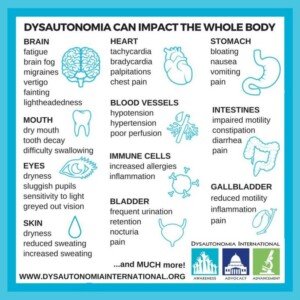Dr. Christine Traxler, MD, suffered from many symptoms and was misdiagnosed multiple times over seven years before she herself figured out what was wrong.
I didn’t know that when my symptoms first started, that I would ultimately feel like the “queen of rare diseases” or maybe just crazy.
I did not know that my journey toward finding an answer would take so long, nor did I realize that I would have to figure most of it out myself.
And yet, I went through all of these things in the last seven years. By the end of that time, I was convinced I would be a woman dying at just under 60 years of age with something no one understood.
My litany of symptoms are long and did not show up all at the same time. Had they all occurred together, perhaps someone would have put it all together and made the correct diagnosis — but neither of those things happened.
It started with weight loss I wasn’t trying to have. I was very overweight in the beginning, so I didn’t mind until I had lost more than a hundred pounds unintentionally.
I then went through uncontrollable incontinence, serious sweating episodes followed by no sweating at all, nasal congestion every time I ate anything, severe constipation, and I eventually started fainting nearly every day.
All of these symptoms started gradually and not all at once. Some things, like the incontinence, disappeared, while the weight loss and fainting hung stubbornly on.
I saw doctors starting in 2014 and was given basic diagnoses like menopause, allergies and urge incontinence.
Three years ago, they told me I had idiopathic gastroparesis, which meant that my weight loss was there because my stomach wasn’t emptying properly.
This was why I struggled so much to eat large meals and felt so uncomfortable for hours after eating.
No one figured out my fainting spells, which got better only when I decided just to eat a lot of salt every day.
When my lower legs went numb suddenly and the tests were normal, I stopped saying anything because I was convinced I was just crazy and imagining it all.
As a physician, I was frustrated by having so many diseases that respected doctors could not explain, only giving me medications to treat symptoms, or telling me just to live with everything.
I was told to wait until my weight was below 110 pounds and then think about having a tube placed in order to feed me.
I started thinking that, back in medical school, we were told to think of the “least common denominator” or the smallest number of disorders that could explain the greatest number of symptoms.
But even I was never taught about these symptoms and neither were any of my doctors.
I became obsessed with researching my symptoms and with reading medical journal articles that would help me put it all together.
Eventually I realized I had some type of dysautonomia, which is an abnormality of the autonomic nervous system.
I couldn’t myself, however, figure out what kind I had. I did some creative “pulling of strings” to get into the Mayo Clinic at their autonomic nervous system clinic.
A few months ago [2020], I had all of the tests for autonomic nervous system diseases, which involved sophisticated blood pressure testing, labs and sweat testing to confirm I did not sweat.
Unfortunately, while they were able to confirm I had dysautonomia, they could not figure out why.

Doctors at Mayo Clinic told Dr. Traxler that her condition probably was not terminal.
The study of dysautonomia in medicine is still so new that a lot of people don’t know why they have it, but still can get some of their symptoms under control.
I continued to reach out to people in other parts of the world for advice and recommendations.
I met a wonderful neuroscientist and nutritionist in England who gave me strange dietary recommendations that I have religiously followed.
I have gone from being one pound shy of having a tube placed in my abdomen to gaining 10 pounds, eating healthier food, sleeping better, having improved blood pressure numbers and regaining the health I had lost.
I realize now that I don’t have a complete answer as to why I have this, but have a much better answer than I once did.
More importantly, I have found doctors and others who understand this disease and have made recommendations that have fortunately restored my health at just about the time I thought I would lose my life.
 After many years as a rural family practice physician, Dr. Traxler turned to a career in medical research and writing to share information with the general public about common medical and health issues. Her extensive knowledge includes management of chronic diseases, neurology and women’s health. Dr. Traxler is currently a writer and contributor for invigormedical.com.
After many years as a rural family practice physician, Dr. Traxler turned to a career in medical research and writing to share information with the general public about common medical and health issues. Her extensive knowledge includes management of chronic diseases, neurology and women’s health. Dr. Traxler is currently a writer and contributor for invigormedical.com.
Here is more information on dysautonomia, which is often misdiagnosed.


























